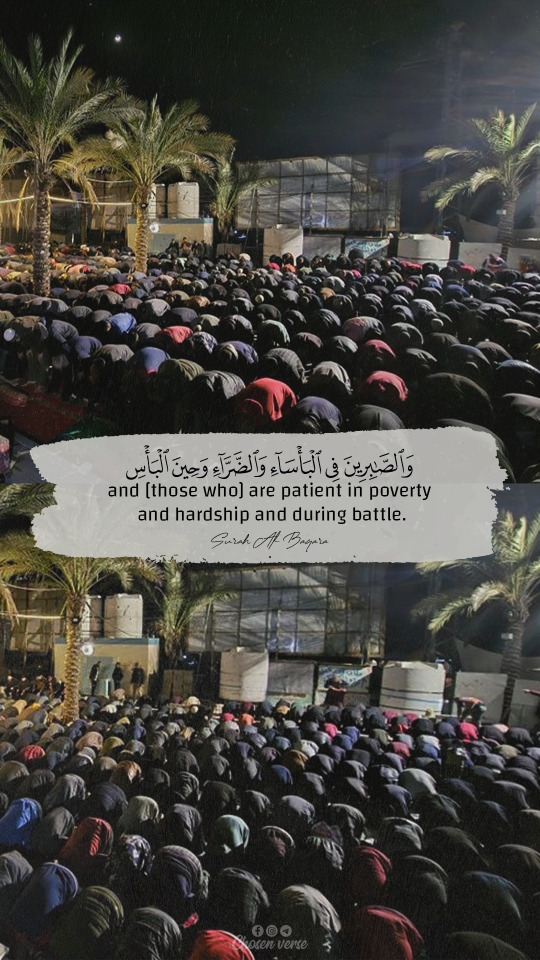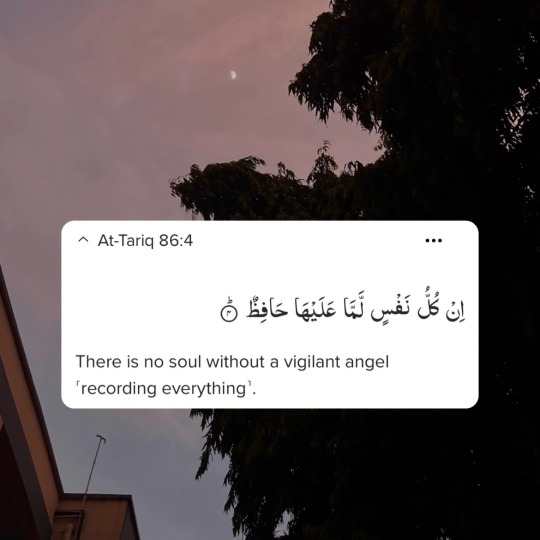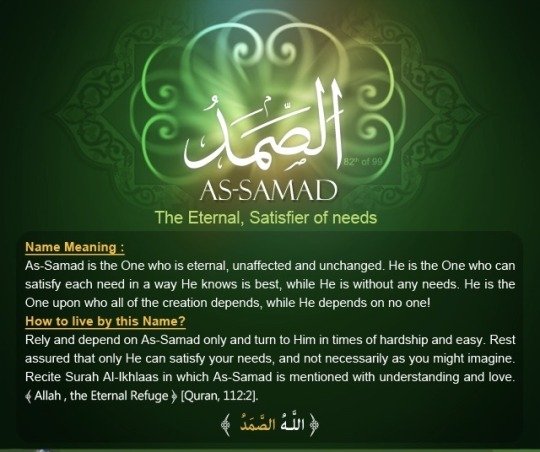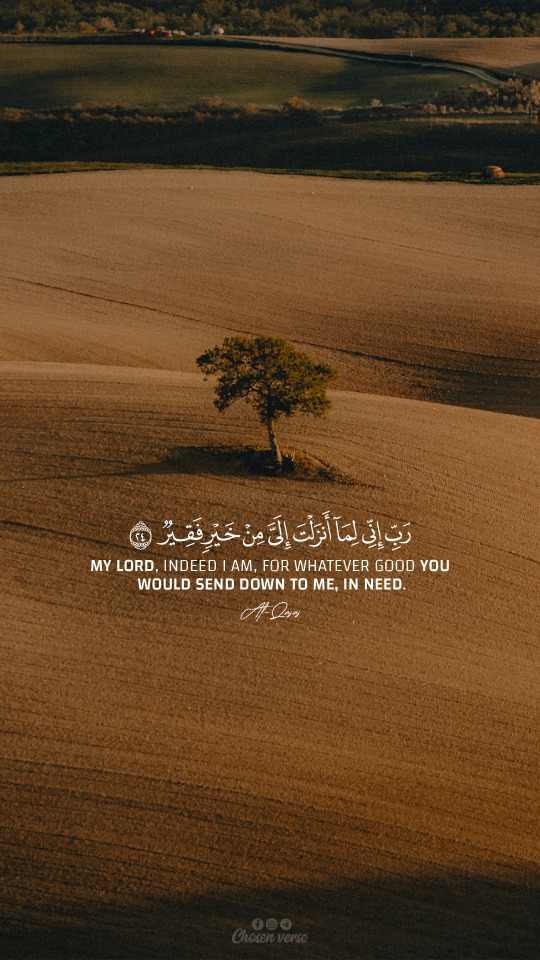#ayat
Text

[Dark Urge tav] thank you Larian Studios for evil women food
#my art#bg3#baldur's gate#baldur's gate 3#baldur's gate oc#the dark urge#ayat#she is romancing minthara and astarion so evil x evil x evil#cw blood#cw horror#tiefling#tiefling tav#dnd#digital art#artists on tumblr#oc#original character#bg3 tav#baldurs gate#tav#bg3 oc
1K notes
·
View notes
Text

أُولَٰئِكَ الَّذِينَ صَدَقُوا ۖ وَأُولَٰئِكَ هُمُ الْمُتَّقُونَ
#Alhamdulillah#islam#muslims#deen#dawah#reminders#muslim reverts#quran#ayat#verses#سالايمات#اسلام#عربي#gaza#دين#palestine#دعوة#دعاء#تذكير#مسلم#قران#غزة#فلسطين#الحمدلله
224 notes
·
View notes
Text



peace be upon you, enter paradise for what you used to do.
- ♡
162 notes
·
View notes
Text

#quran#Quran#holy quran#Quran verse#quran verse#quran verses#islam#islamic#deen#imaan#muslim#muslimah#ayat#ayah#surah
206 notes
·
View notes
Text
Daily Hadith
Bismillah Walhamdulillah Was Salaatu Was Salaam 'ala Rasulillah
Narrated 'Abdullah bin 'Amr (Radi-Allahu 'anhu):
A man asked the Prophet (Sallallahu 'Alaihi Wa Sallam), "What Islamic traits are the best?" The Prophet (Sallallahu 'Alaihi Wa Sallam) said, "Feeding the people, and greeting those whom you know and those whom you do not know."
Bukhari Vol. 8 : No. 253
#allah#god#islam#muslim#quran#ayat#hadith#revert#convert#convert islam#revert islam#revert help team#help#islamhelp#converthelp#prayer#salah#muslimah#reminder#pray#dua#hijab#religion#mohammad#new muslim#new revert#new convert#how to convert to islam#convert to islam#welcome to islam
48 notes
·
View notes
Text

Allah calls Himself As-Samad— The Eternal, Satisfier of Needs, the Refuge and Absolute— on one occasion in the Quran. As-Samad is the unchangeable one on whom the entire creation depends. He is the one unaffected by any circumstance and the only one able to fulfil all needs in the most perfect way, without Himself being in need of anything or anyone!
The Eternal, Everlasting Refuge, Satisfier of All Needs
Samad comes from the root saad-meem-daal, which points to two main meanings. The first main meaning is to reach or attain, or to aim toward something. The second main meaning is to turn to and to need, and the third is to remain unchanged and unaffected. The fourth main meaning is to be everlasting and eternal.
This root appears just once in the Quran, as the noun samad. The example is al-samadu (“The Eternal, Absolute”).
Linguistically, samad means something that is not affected by circumstances or something that is solid. Sumood refers to the concept of being firm and steadfast.
As-Samad is the the One who is not changed nor affected by anything in the creation, He is the eternal and absolute refuge to seek and depend on for all needs and desires.
As-Samad Himself says: Say, ‘He is Allah , [who is] One, Allah , the Eternal Refuge. He neither begets nor is born, nor is there to Him any equivalent.’ [Quran, 112:1-4]
A description of Allah
The only place in the Quran Allah ‘azza wa jall calls Himself As-Samad is in Surah Al-Ikhlaas; the virtuous surah mentioned in the authentic hadith in Muslim to equal one-third of the Quran. This short, but amazingly beautiful and profound surah is a description of Allah Himself, His Oneness, His samad’yyah and His incomparability. Allah revealed this surah as a powerful answer to the people of Makkah who asked the Prophet salallahu ‘alayhi wa sallam to describe His Lord and His ‘lineage.’
What is ikhlaas (sincerity)? It is doing deeds purely for Him and to seek His pleasure, because He is Al-Ahad, the One and Unique. It is turning to Him for our needs and desires and desire Him only, because He is As-Samad, The Eternal and Satisfier of Needs, and it is to live by the fact that there is no one equal to Him in any of His attributes!
How can you live by this name?
1. Recite and live by Surah al-Ikhlaas.
Recite Surah Al-Ikhlaas often to gain reward, but not only that; learn to understand each word and live by the names of Allah mentioned in it. Love to recite this surah and talk about it to others as you are describing your Lord. Learn how to correctly recite it and convey it to at least one other person and teach your children the history and/or tafseer (explanation) of this virtuoussurah in which As-Samad is mentioned in order to instil love of Allah in their hearts.
2. Realize your dependence on Him.
One of the meanings of As-Samad is the One who is independent and self-sufficient. If you look at a manager, for example, one who has a high position with authority over others, it still takes one note from his superiors to end his career. This person is not samad. Then look at what we need tu survive as human beings; air, water, food, and even love. Why do we often act like as if we are independent? Especially during good times when we are healthy and wealthy we tend to forget we are even dependant on As-Samad for the strap of our shoe. So remind yourself daily that you are dependent on Him.
3. Call upon Him.
Here’s a beautiful supplication the Prophet salallahu ‘alayhi wa sallam used to make as part of the morning:
“يَا حَيُّ يَا قَيُّومُ بِرَحْمَتِكَ أَسْتَغِيثُ أَصْلِحْ لِي شَأْنِي كُلَّهُ وَلَا تَكِلْنِي إِلَى نَفْسِي طَرْفَةَ عَيْنٍ”.
O Ever Living One, O Eternal One, by Your mercy I call on You to set right all my affairs. Do not place me in charge of my soul even for the blinking of an eye (i.e. a moment). [Al-Haakim, saheeh] Memorize this dua’ and say it with true desire, fully realizing your dependence on As-Samad!
4. Desire As-Samad.
Turn to As-Samad in good and bad times and rely on Him, resting assured He is the Eternal Refuge and the One who will satisfy your needs in the way He knows is best for you. If you truly believe in As-Samad, your strongest desire will be to meet Him and your only fear will be that of His displeasure. So strive to be a real servant of Allah. The disbeliever is a slave of his desires, or of fashion, his belly, and his money. So beg Him to decrease the love for this world in your heart, including love of being praised by people, and replace it with a firm desire for His pleasure alone.
Wallahu ta’alaa ‘alem
O Allah, As-Samad, we know that You are the only Eternal Refuge. Make us realize we need you at all times and aid us to be of those who turn to You only for our needs. Adorn us with a strong desire to please You alone, ameen!
#allah#islam#revert help team#asma al husna#revert help#muslim#ayat#daily#allah’s name#dua#pray#prayer#salah#muslimah#hijab#religion#reminder#mohammed#new muslim#new revert#new convert#how to convert islam#converthelp#convert islam#become a muslim#welcome to islam#daily ayat#prophet#god#revert
34 notes
·
View notes
Text

The #Quran 07:128 (Surah al-A’raf)
قَالَ مُوسَىٰ لِقَوْمِهِ اسْتَعِينُوا بِاللَّهِ وَاصْبِرُوا ۖ إِنَّ الْأَرْضَ لِلَّهِ يُورِثُهَا مَن يَشَاءُ مِنْ عِبَادِهِ ۖ وَالْعَاقِبَةُ لِلْمُتَّقِينَ
Said Moses to his people, "Seek help through Allah and be patient. Indeed, the earth belongs to Allah . He causes to inherit it whom He wills of His servants. And the [best] outcome is for the righteous."
#quran#quotes#quranic quotes#muslim#allah#faith#life#history#reminders#reminder#quote#beautiful#ayat#dailyquotes#30 days 30 ayahs#be better
25 notes
·
View notes
Text
The All-Beautiful Names of God: Past 6
The Names Originating in Divine Attributes of Glory
(Al-)Hayy: The All-Living
(Ash-)Shakur: The All-Responsive (to the good and gratitude of His creatures)
(Al-)Qahhar: The All-Overwhelming (with absolute sway over all that exists)
(Al-)Qahir: The All-Overpowering, Who crushes those who deserve crushing
(Al-)Muqtadir: The All-Omnipotent
(Al-)Qawiyy: The All-Strong
(Al-)Murid: The All-Willing
(Al-)Qadir: The All-Powerful
(Ar-)Rahman: The All-Merciful (Who has mercy on the whole of existence and provides for all of them)
(Ar-)Rahim: The All-Compassionate (Who has particular compassion for each of His creatures in their maintenance, and for His believing servants especially in the other world)
(As-)Subhan: The All-Glorified
(As-)Sultan: The Absolute, Eternal Authority
(Al-)Karim: The All-Munificent
(Al-)Ghaffar: The Oft-Forgiver of sins
(Al-)Ghafur: The All-Forgiving
(Al-)Wadud: The All-Loving and All-Beloved
(Ar-)Rauf: The All-Pitying
(Al-)Halim: The All-Clement (showing no haste to punish the errors of His servants)
(Al-)Barr: The All-Benign
(As-)Sabur: The All-Patient (Whom no haste induces to rush into an action)
(Al-)‘Alim: The All-Knowing
(Al-)Khabir: The All-Aware
(Al-)Muhsi: The All-Counting and Recording
(Al-)Hakim: The One Who does everything properly, the All-Wise
(Ash-)Shahid: The All-Witnessing
(As-)Sami‘: The All-Hearing
(Al-)Basir: The All-Seeing
(Al-)‘Afuww: The All-Pardoning (Who overlooks the faults of His servants and grants remission)
The Names Indicating Divine Acts
(Al-)Mubdi: The All-Initiating
(Al-)Wakil: The One to rely on and to Whom affairs should be entrusted
(Al-)Baith: The One Who restores life to the dead
(Al-)Mujib: The All-Answering (of prayers) and Meeting (of needs)
(Al-)Wasi‘: The All-Embracing (in His Knowledge and Mercy)
(Al-)Hasib: The All-Sufficing as One Who reckons and settles the accounts (of His servants)
(Al-)Mughis: The One Who gives extra help
(Al-)Hafiz: The All-Preserving and Keeper of records, the All-Protecting
(Al-)Khaliq: The C reator (Who determines measure for everything and makes things and beings exist out of nothing)
(as-)Sani‘: The Maker
(Al-)Bari: The All-Holy C reator (Who is absolutely free from having any partners and Who creates without imitating anything)
(Al-)Musawwir: The All-Fashioning
(Ar-)Razzaq: The All-Providing
(Al-)Wahhab: The All-Bestowing
(As-)Sattar: The All-Veiling (of His servants’ shortcomings and sins)
(Al-)Fatir: The All-Originating (with a unique individuality)
(Al-)Fattah: The One Who opens the door of good
(An-)Nasir: The All-Helping and Giver of Victory
(Al-)Kafi: The All-Sufficing
(Al-)Qabid: The All-Constricting; the One Who takes the souls of living beings
(Al-)Basit: The All-Expanding
(Al-)Hafid: The One Who lowers and humiliates whom He wills
(Ar-)Rafi‘: The All-Elevating
(Al-)Mu‘izz: The All-Exalting and Honoring
(Al-)Mudhill: The All-Abasing
(Al-)Hakam: The All-Judging (Who settles the matters between people)
(Al-)‘Adl: The All-Just
(Al-)Latif: The All-Subtle (penetrating into the minutest dimensions of all things and providing for all)
(Al-)Mu‘id: The All-Returning and Restoring (the One Who causes to die after life and returns the dead to life)
(Al-)Muhyi: The Giver of life and All-Reviving
(Al-)Mumit: The One Who causes to die; the All-Dealing of death
(Al-)Waliyy: The Guardian, the Protecting Friend (to rely on)
(At-)Tawwab: The One Who guides to repentance, accepts
• repentance, and returns it with liberal forgiveness and additional reward
(Al-)Muntaqim: The Ever-Able to requite
(Al-)Muqsit: The All-Dealing of justice
(Al-)Jami‘: The One having all excellences to the infinite degree; the All-Gathering
(Al-)Mughni: The All-Enriching
(Al-)Mani‘: The All-Preventing and Withdrawing; the One Who does not give whatever He does not will to give
(Ad-)Darr: The C reator of evil and harm
(An-)Nafi‘: The All-Favoring and Giver of benefits
(Al-)Hadi: The All-Guiding
(Al-)Badi‘: The One Who originates in unique fashion and with nothing preceding Him to imitate
(Ar-)Rashid: The All-Guide to what is correct
(Al-)Qayyūm: The S elf-Subsistent (by Whom all subsist)
Maliku’l-mulk: The absolute Master of all dominion
(Al-)Mu‘akhkhir: The One Who leaves behind
(Al-)Muqaddim: The One Who causes to advance, Who moves things forward
(Al-)Muqit: The All-Aiding and Sustaining
(al-)Wali: The All-Governing
#islam#muslim#allah#god#revert#convert#help#hijab#muslimah#quran#ayat#religion#reminder#dua#salah#pray#prayer#sunnah#hadith#prophet#muhammad#welcome to islam#how to convert to islam#new muslim#new revert#new convert#revert help#convert help#islam help#muslim help
46 notes
·
View notes
Text
"My Lord has always been kind to Me."
-- The Noble Qur'an [19:47]
295 notes
·
View notes
Text


New Durge! Hi Ayat <3
#shes so purdy#im mad bc her skin is the dryad tone and it only really seemed green in character creation...pain#well imagine it more green#baldur's gate#bg3#tav#ayat#me? making another arab oc with dark hair and dubious morals? more likely than you think
152 notes
·
View notes
Text

Our Lord, we will continue to knock on Your door for the rest of our lives.
You are the best listener and the best responder.
You are the only one who relieves us from all hardships.
You are the one who bestows upon us countless blessings and also the one who withholds them.
If You grant us gifts, it is a blessing from You, something we hope for and look forward to. And if You choose to withhold, You remain our Lord, Creator.
Our hands will be raised to none but You. We have no one but You. If we are turned away from Your door, where else shall we knock?"
#Alhamdulillah#islam#muslims#deen#dawah#dua#arabic#reminders#quran#ayat#verses#islamic designs#islamic photos#islamic contnet#muslim reverts#اسلاميات#اسلام#عربي#دين#دعوة#دعاء#تذكير#مسلم#ايات#قران#مسلمة#الحمدلله
457 notes
·
View notes
Text
Tafsir Ibn Kathir: Surah Al-Hijr Ayah 21-25
In the Name of Allah, the Most Gracious, the Most Merciful.
15:21 And there is not a thing, but the supplies for it are with Us, and We do not send it down but in a known measure.
15:22 And We send the winds fertilizing, then We cause the water to descend from the sky, and We give it to you to drink, and it is not you who are the owners of its supply.
15:23 And certainly We! It is We Who give life, and cause death, and We are the Inheritors.
15:24 And indeed, We know the first generations of you who have passed away, and indeed, We know the present generations of you (mankind), and also those who will come afterwards.
15:25 And verily, your Lord will gather them together. Truly, He is Most Wise, (and) Knowing.
The Supplies for All Things are with Allah
Allah says:
And there is not a thing, but the supplies for it are with Us,
Allah tells us that He is the Owner of all things, and that everything is easy for Him. He has the supplies for all things with Him.
and We do not send it down but in a known measure.
meaning, as He wills and as He wants. Doing so out of His great wisdom and mercy towards His servants, in a way that He is under no obligation to do. But He has decreed mercy for Himself.
Yazid bin Abi Ziyad reported from Abu Juhayfah that Abdullah said:
"No year has more rain than another, but Allah divides the rain between them as He wills, it rains: here a year and there a year. Then he recited,
And there is not a thing but the supplies for it are with Us...).
Reported by Ibn Jarir.
Benefits of the Winds
Allah says:
And We send the winds fertilizing.
i.e., fertilizing the clouds so that they give rain, and fertilizing the trees so that they open their leaves and blossoms.
These winds are mentioned here in the plural form because they give results, unlike the barren wind (Ar-Rih Al-'Aqim, see Adh-Dhariyat 51:41), which is mentioned in the singular and described as barren since it does not produce anything; because results can only be produced when there are two or more things.
Abdullah bin Mas`ud said,
"The wind is sent bearing water from the sky, then it fertilizes the clouds until rain begins to generously fall, just as the milk of the pregnant camel flows generously.''
This was also the opinion of Ibn Abbas, Ibrahim An-Nakha`i and Qatadah.
Ad-Dahhak said:
"Allah sends it to the clouds and it gets fertilized and becomes full of water.''
Ubayd bin Umayr Al-Laythi said:
"Allah sends the wind which stirs up the earth, then Allah sends the wind which raises clouds, then Allah sends the wind which forms clouds, then Allah sends the fertilizing wind which pollinates the trees."
Then he recited, (And We sent the winds fertilizing).
Fresh Water is a Blessing from Allah
Allah says:
then We cause the water to descend from the sky,
and We give it to you to drink,
This means, "and We send it down to you fresh and sweet, so that you can drink it; if We had wished, We could have made it salty (and undrinkable)'', as Allah points out in another Ayah in Surah Al-Waqi`ah, where He says:
Tell Me! The water that you drink, is it you who cause it to come down from the rain clouds, or are We the cause of it coming down! If We willed, We verily could make it salty (and undrinkable), why then do you not give thanks (to Allah)! )56:68-70(
And Allah says:
He it is Who sends water down from the sky; from it you drink and from it (grows) the vegetation on which you send your cattle to pasture. (16:10)
and it is not you who are the owners of its supply.
The meaning is, "You are not taking care of it; rather We send it down and take care of it for you, making springs and wells flourish on the earth.''
If Allah so willed, He could make it disappear, but by His mercy He sends it down and makes it fresh and sweet, maintaining the springs, wells, rivers and so on, so that they may drink from it all year long, water their livestock and irrigate their crops.
The Power of Allah to initiate and renew Creation
Allah says:
And certainly We! We it is Who give life, and cause death,
Here Allah tells us of His power to initiate creation and renew it. He is the One Who brings life to creatures out of nothingness, then He causes them to die, then He will resurrect all of them on the Day when He will gather them together.
and We are the Inheritors.
He also tells us that He will inherit the earth and everyone on it, and then it is to Him that they will return.
Then He tells us about His perfect knowledge of them, the first and the last of them.
He says:
And indeed, We know the first generations of you who had passed away....
Ibn Abbas said,
"The first generations are all those who have passed away since the time of Adam. The present generations and those who will come afterward refer to those who are alive now and who are yet to come, until the Day of Resurrection.''
Something similar was narrated from Ikrimah, Mujahid, Ad-Dahhak, Qatadah, Muhammad bin Ka`b, Ash-Sha`bi and others.
Ibn Jarir reported from Muhammad bin Abi Ma`shar, from his father, that;
he heard Awn bin Abdullah discussing the following Ayah with Muhammad bin Ka`b:
And indeed, We know the first generations of you who had passed away, and indeed, We know the present generations of you (mankind), and also those who will come afterwards,
and it was stated that it refers to the rows for prayer.
Muhammad bin Ka`b said, "This is not the case. (And indeed, We know the first generations of you who had passed away),
it refers to those who are dead or have been killed,
and;
and also those who will come(afterwards),
meaning those who have yet to be created.
And verily your Lord will gather them together. Truly, He is Most Wise, (and) Knowing).''
Awn bin Abdullah said,
"May Allah help you and reward you with good.''
12 notes
·
View notes
Text

#quran#holy quran#quran verses#quran quotes#ayah#ayat#quran ayah#quran ayat#quran verse#islam#islamic#deen#imaan#muslim#muslimah
41 notes
·
View notes
Photo

Happy birthday, my lord
My twitter
54 notes
·
View notes

